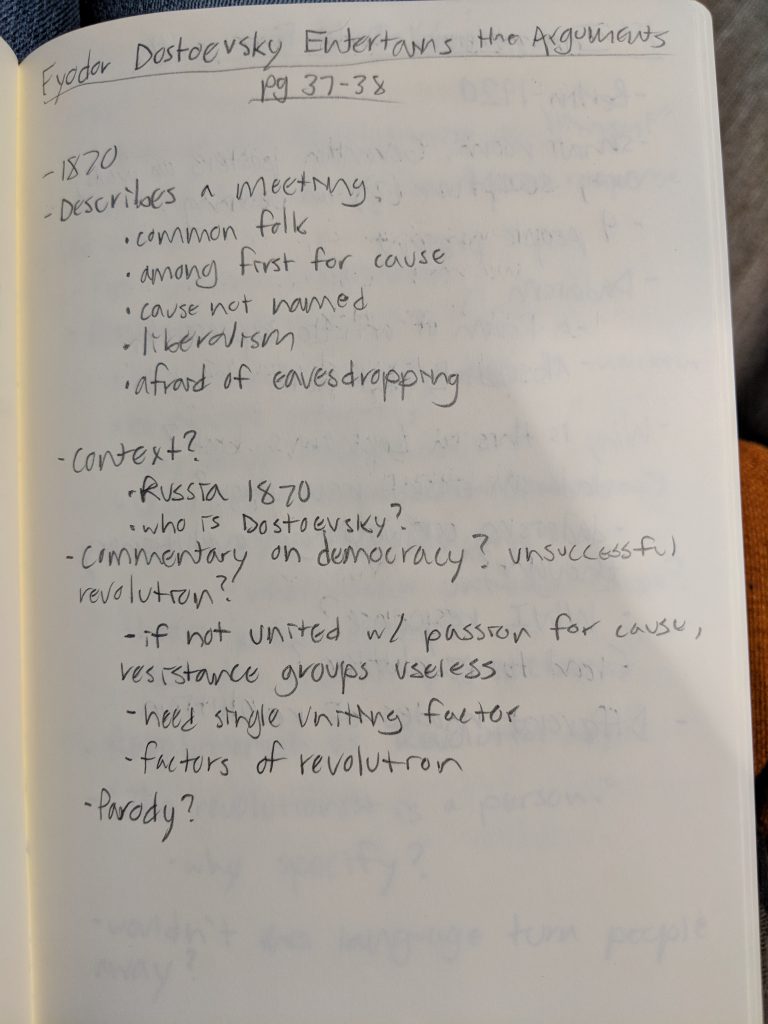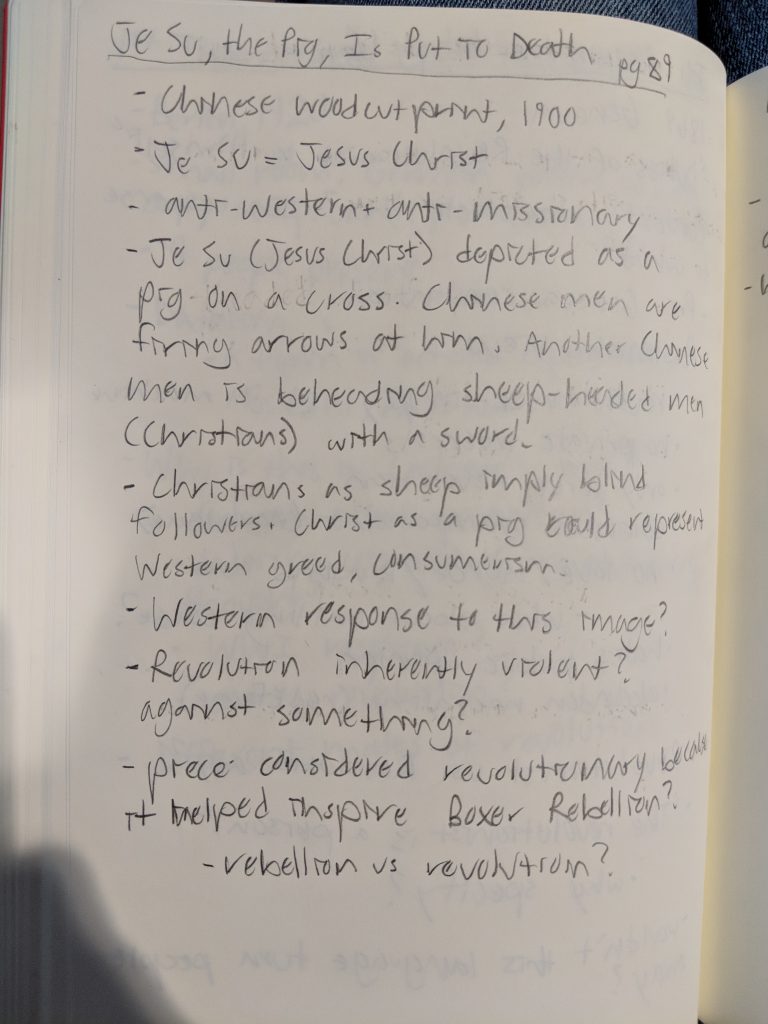Part of revolution is a transcendence. A transcendence of previous conceptual schemes: of language, of definitions, of labels, of ideas. The word transcendence is referenced in multiple texts we’ve read so far this year. In The Second Sex, Simone de Beauvoir describes transcendence as a human need, stating that “every individual concerned with justifying his existence experiences his existence as an indefinite need to transcend himself,” and “there is no other justification for present existence than its expansion toward an indefinitely open future.” This especially applies to minorities and disenfranchised groups who must continually prove themselves human, such as leaders of the civil rights movement as discussed in Dr. Wills’ unit. And these leaders must not only transcend themselves, but the roles imposed on them by those in power, compelled by the conceptual schemes of the time. Fanon, too, mentions transcendence, claiming that “consciousness is a process of transcendence.” Consciousness itself, as a process of transcendence, can be a process of revolution; consciousness combats banality and immanence, or the state of being inherent, which de Beauvoir defines as the opposite of transcendence. I believe banality and immanence to be similar.
Because consciousness can be a process of revolution, revolution does not have to be a group act. However, in the cases that it is, the group must have some form of connection. On pages 37-38 of Lapham’s Revolutions, the reading entitled “Fyodor Dostoevsky Entertains the Arguments” exemplifies this. The text describes an unproductive meeting where a group attempts to name a cause to support. The meeting would have been much more productive had they been united in passion. There must be some sort of connection.


Je Su, The Pig, Is Put to Death, a Chinese woodcut print from 1900, depicts Jesus as a pig on a cross with Chinese men firing arrows at him. The piece reflects anti-Western, anti-missionary sentiments in China during this time. Seeing this image, I couldn’t help but wonder what the difference between rebellion and revolution is. Is violence necessary for either? I think that while revolutions are rebellions, rebellions are not always revolutions. To be considered a revolution, a rebellion must have widespread consequences that change current conceptual schemes, as mentioned above. Additionally, I feel that “rebellion” denotes a more localized, individualized movement. It makes it seem like an isolated incident. Branding revolutionary acts as rebellions can take the revolutionary context out of those events, therefore allowing those in power to ignore the underlying structures of power that people felt the need to oppose. “Rebellion” also has a more negative connotation than “revolution.” I think that a rebellious act with more sympathizers is more revolutionary than one with less. Those rebellious acts don’t always have to involve violence, but they have to be oppositional in nature.
The “success” of a revolution, however, is still subject to popular ideologies. The concept of success is strongly linked to and defined by existing power structures. For example, Western historiographies didn’t consider the Haitian Revolution successful for most of history. After the collective efforts of St. Dominique slaves resulted in the first black republic in the Western hemisphere, the country fell into economic deficiency; therefore, it was considered a failure. Nevermind how this bankruptcy resulted from diplomatic isolation and indemnity imposed by America and European powers. History isn’t told by the winners; it’s told by the powerful.
Throughout the quarantine, I’ve been reevaluating the conditions of a revolution, especially the role of proximity. There’s a certain apathy that comes with distance, I’ve realized, and not just physical distance. Emotional distance, lack of empathy. Revolution is nothing without proximity — physical and/or emotional. There must be a connection, a tie that binds. By definition, revolution cannot exist in a vacuum. It needs context to be significant.
I have been wondering if a revolution would be possible in our current conditions of distancing and isolation. When someone pictures a revolution, they probably imagine protesters running the streets, not dissimilar to imagery from The Baader-Meinhof Complex. People united, fighting for a common ideal. How could this be possible now?
Had a quarantine of this scale happened a century or so ago, it probably wouldn’t have been. Can you imagine being stuck like this then? How cripplingly lonely it would have been? You would have essentially been cut off from the world.
We’re in a unique position today because we still have access to the internet. We can call and message our friends. We can see what strangers are posting on Twitter. We are still connected. So, maybe revolution would still be possible. Maybe, in this way, the concept of revolution is changing, becoming more accessible. But then again, new changes come with new challenges.
I don’t think revolution can survive as a lonely thing. There has to be a connection somewhere, at least a shared belief. As I mentioned earlier, I would be quicker to define someone’s act of defiance expressing a belief shared by others as revolutionary before someone’s act of defiance expressing ideas only they believe.
